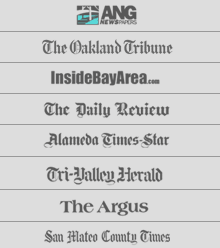|
|
|
|
|
|
|
|
|
|
|
|
|
|
 |
 |
|
| Cheryl North :: Articles | ||
|
This column discusses Fremont Opera, which has mounted critically acclaimed productions of La Boheme (2007) and The Barber of Seville (2008), and Nolan Gasser, a Bay Area composer who is achieving national recongition for large-scale compositions inspired by the American experience: its history and its latest scientific achievements. Fremont Opera and Composer Nolan Gasser: Bay Area Musical Talent That Is Achieving Deserved RecognitionBay Area News Media Preview Section/Inside Bay Area Classical Music Column for August 15, 2008 Is grand opera composed of great music to which some words have been added? Or is it good drama set to appealing tunes? According to Maestro David Sloss, conductor, professor and director of operas, symphonies and other sundry musical ensembles, it can combine both of the above — but sadly, not often enough. Says Sloss, "Once in a while, we are given a work in which both the music and the drama are at the highest level and perfectly matched." One of those few is Gioachino Rossini and Pierre-Augustin Caron de Beaumarchais' The Barber of Seville. To my query about which other operas in the repertory Sloss would include among this rare group, he quickly replied, "Almost all of Mozart's, of course." Then he added Tosca and La Boheme by Puccini and Bizet's Carmen. "No Wagner?" I asked. After hesitating a few seconds, he said, "Well, I can tell you what Rossini (who lived from 1792 to 1868) said about Wagner's operas: Rossini said that one could find some of opera's best moments and very worst quarter-hours in his operas. He also said that Wagner's Lohengrin couldn't be assessed with only one hearing — but that he personally, didn't want to ever hear it again." Sloss and his wife, Barbara, are the founders and prime movers of the year-old Fremont Opera. The fledgling company's second production, The Barber of Seville, will be performed in the Jackson Theatre of the Smith Center for the Performing Arts in Fremont next week. According to Sloss, the cast — led by Eugene Brancoveanu as Figaro the barber and Nikki Einfeld as Rosina, with Eleazar Rodriguez as Count Almaviva, Jason Budd as Dr. Bartolo, Kirk Eichelberger as Don Basilio and Elspeth Franks as Berta — is absolutely top-notch. Jonathon Field will be the stage director and Sloss will conduct. Brancoveanu recently has won both critical and public acclaim as an "extravagantly gifted" baritone for his sensitive performance as the pilot in San Francisco Opera's spring production of Rachel Portman's The Little Prince. Born in Romania, the dashing Brancoveanu will take on the role of Belcore in San Francisco Opera's production of L'Elisir d'Amore this coming season. Attractive young Einfeld, who like Brancoveanu and Eichelberger trained with the Merola Program, recently has sung the saucy part of Susanna in Mozart's opera The Marriage of Figaro, composed to Lorenzo da Ponte's version of a segment of Beaumarchais' satirical saga on barber Figaro and his 17th century friends. The Fremont Opera's Barber will be semi-staged, with costumes, relevant props, intricate stage direction and theatrical lighting, but no sets and scenery. It will be sung in Italian, with English supertitles. Sloss explained that not paying for sets and scenery is quite intentional. "It makes it possible to use our money to pay for super singers and a full-size orchestra." MUSIC'S MAN ON THE MOVE: Armed with a Ph.D. in medieval and Renaissance music from Stanford University, rising young composer Nolan Gasser has been providing some significant thrust into the music vs. words debate lately. His NASA-commissioned GLAST Prelude for brass quintet accompanied the launch of the Gamma-ray Large Area Space Telescope (GLAST) at the Kennedy Space Center in Florida last June 11. However, his latest piece, American Festivals, might have the potential to become our own home-grown, thoroughly colloquial ode to joy. A joint effort of Gasser and librettist-poet Robert Trent Jones Jr., the work received its rousing world premiere in July at the opening event of Napa Valley's Festival del Sole. Described as a symphonic oratorio, each of its four movements — "Independence Day," "Memorial Day," "Martin Luther King Jr. Day" and "Thanksgiving" — includes words imaginatively set for full orchestra, chorus, soloists and/or orator. However, according to Gasser, his intention was to go further than perfunctory flag-waving, by relating to the people and problems of our own times. "The words," he says, "explore our national identity as well as our responsibilities as Americans — including, as Ben Franklin said, questioning our leaders through the difficulty of wars and civil rights and race issues." The massive indoor and outdoor Festival del Sole audience reacted with exuberant cheers, whoops and lengthy applause to the piece's premiere performance. Gasser's music brilliantly related to the poetry with relevant, inventive references such as an evocation of the pealing of the Liberty Bell on its original pitch of E-flat; the use of a tenor saxophone playing a sometimes bluesy but ultimately inspiring theme to represent Martin Luther King; intricate counterpoint passages recalling early liturgical music; the use of the haunting Native American flute, mourning bagpipes, and appealing snippets of familiar tunes and hymns reminiscent of the style of Charles Ives. His latest commission is to create a piece he's calling Cosmic Reflections, a major three-movement symphony for full orchestra scheduled to premiere in October 2009 at the Kennedy Center in Washington, D.C. *** Nolan Gasser's GLAST Prelude received mention in the July 11, 2008 issue of Science. Further information can be found at nolangasser.com.
|

|